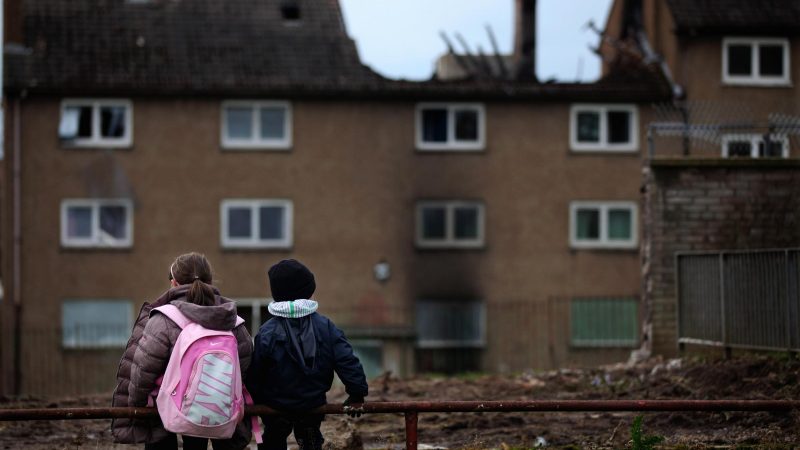'If the Government is serious about tackling inequality and levelling up, it needs to act to increase the incomes of those in poverty'

There is a danger that in our discussions about levelling up, London is presented as a city whose streets are paved with gold, while the rest of the country is underfunded.
London is home to the highest rates of child poverty in the country, the highest rates of homelessness, and some of the worst deprivation in the country. It’s true that other regions and nations of the UK don’t get the same investment as London, but it’s also true that the wealth from those investments does not trickle down to ordinary Londoners just like in the rest of the country.
We do need to level up our country, but we can’t allow levelling up to be seen only in geographic terms – a debate over statistics by area, when what matters is the impact on people everywhere.
We’re over fifty years on from the pioneering Equal Pay Act, campaigned for by the Dagenham women at the Ford plant in east London, and delivered by Barbara Castle.
Yet still women are paid less than men, and at the current slow rate of progress we won’t close the gender pay gap until 2059 – nearly 90 years after Labour delivered the Equal Pay Act, and well after most women working today will have retired. We need enhanced equality pay auditing in all large employers to root out discrimination – backed by fines if gaps aren’t rectified.
The same applies to pay gaps affecting staff from black and minority ethnic backgrounds as well as disabled workers too.
Women face institutional and societal barriers. Last year, the Guardian reported that “growing numbers of women are taking their employers to court citing the menopause as proof of unfair dismissal and direct sex discrimination”.
As shadow equalities minister, I set out how a Labour government would have strengthened protections for women against unfair dismissal and to have the right to flexible working, especially during pregnancy and the menopause. To encourage cultural change I also proposed to double paternity leave to four weeks, alongside shared parental leave entitlement.
For both men and women who have survived domestic abuse, I pledged at Labour Conference 10 days of paid leave. Too many women face the double disadvantage of facing abuse at home and then being disadvantaged or even sacked at work.
It’s also a national disgrace that under the Conservative government, women’s refuges have closed as funding has been cut. I’m proud that in my time as shadow equalities minister we called for misogyny and violence against women and girls to become hate crimes – a move backed by Labour in the Lords in a successful amendment to the Government’s Police, Crime, Sentencing and Courts Bill.
If we’re serious about levelling up, then we also have to address the poverty rates of social security and the endemic low pay. Child poverty has increased by 700,000 to 4.3 million in the last twelve years of Conservative rule. Such is the blight of low pay that most children in poverty now live in a household where at least one parent works. We can’t end child poverty unless and until we end the poverty of their parents and guardians. That means boosting pay and boosting social security.
According to the Social Metrics Commission, black and minority ethnic households are twice as likely to be in poverty – and half of all African Caribbean households live in poverty. These racial inequalities must be tackled.
During the pandemic the Government acknowledged that Universal Credit was too low and boosted it by £20 per week – although they refused to extend that to disabled people’s benefits. Now that £20 has been withdrawn and this year, with inflation currently at 5.4%, benefits are only rising by 3.1% meaning a real-terms cut in living standards for millions of the poorest people in our society.
The minimum wage is still set below the level of the real living wage, and even further below the London living wage benchmark.
If the Government is serious about tackling inequality and levelling up, it needs to act to increase the incomes of those in poverty, and tackle the structural barriers that hold people back.
Left Foot Forward doesn't have the backing of big business or billionaires. We rely on the kind and generous support of ordinary people like you.
You can support hard-hitting journalism that holds the right to account, provides a forum for debate among progressives, and covers the stories the rest of the media ignore. Donate today.



